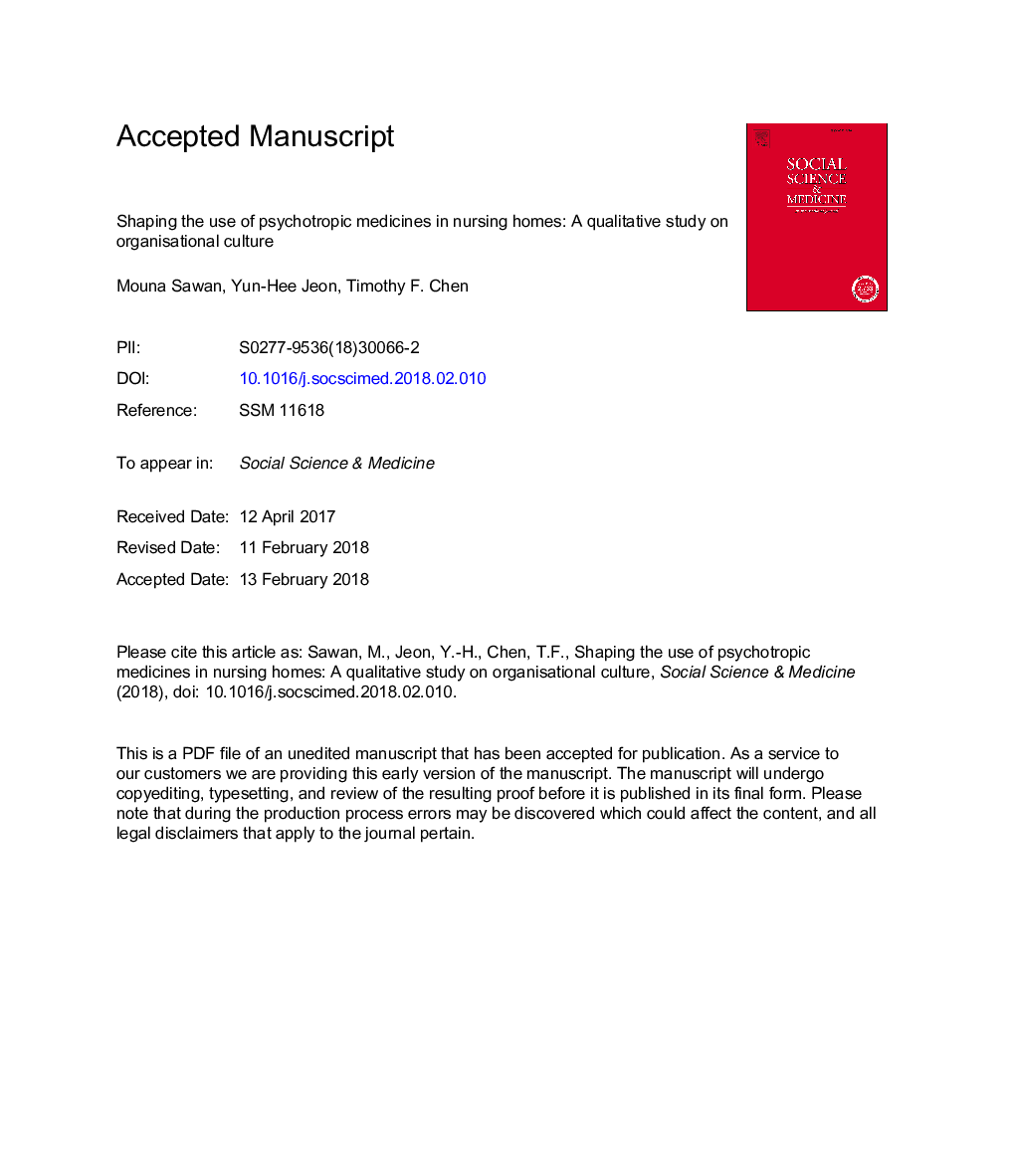| Article ID | Journal | Published Year | Pages | File Type |
|---|---|---|---|---|
| 7328140 | Social Science & Medicine | 2018 | 37 Pages |
Abstract
Psychotropic medicines have limited efficacy in the management of behavioural and psychological disturbances, yet they are commonly used in nursing homes. Organisational culture is an important consideration influencing use of psychotropic medicines. Schein's theory elucidates that organisational culture is underpinned by basic assumptions, which are the taken for granted beliefs driving organisational members' behaviour and practices. By exploring the basic assumptions of culture we are able to find explanations for why psychotropic medicines are prescribed contrary to standards. A qualitative study guided by Schein's theory was conducted using semi-structured interviews with 40 staff representing a broad range of roles from eight nursing homes. Findings from the study suggest two basic assumptions influenced the use of psychotropic medicines: locus of control and necessity for efficiency or comprehensiveness. Locus of control pertained to whether staff believed they could control decisions when facing negative work experiences. Necessity for efficiency or comprehensiveness concerned how much time and effort was spent on a given task. Participants' arrived at decisions to use psychotropic medicines that were inconsistent with ideal standards when they believed they were helpless to do the right thing by the resident and it was necessary to restrict time on a given task. Basic assumptions tended to provide the rationale for staff to use psychotropic medicines when it was not compatible with standards. Organisational culture is an important factor that should be addressed to optimise psychotropic medicine use.
Keywords
Related Topics
Health Sciences
Medicine and Dentistry
Public Health and Health Policy
Authors
Mouna Sawan, Yun-Hee Jeon, Timothy F. Chen,
